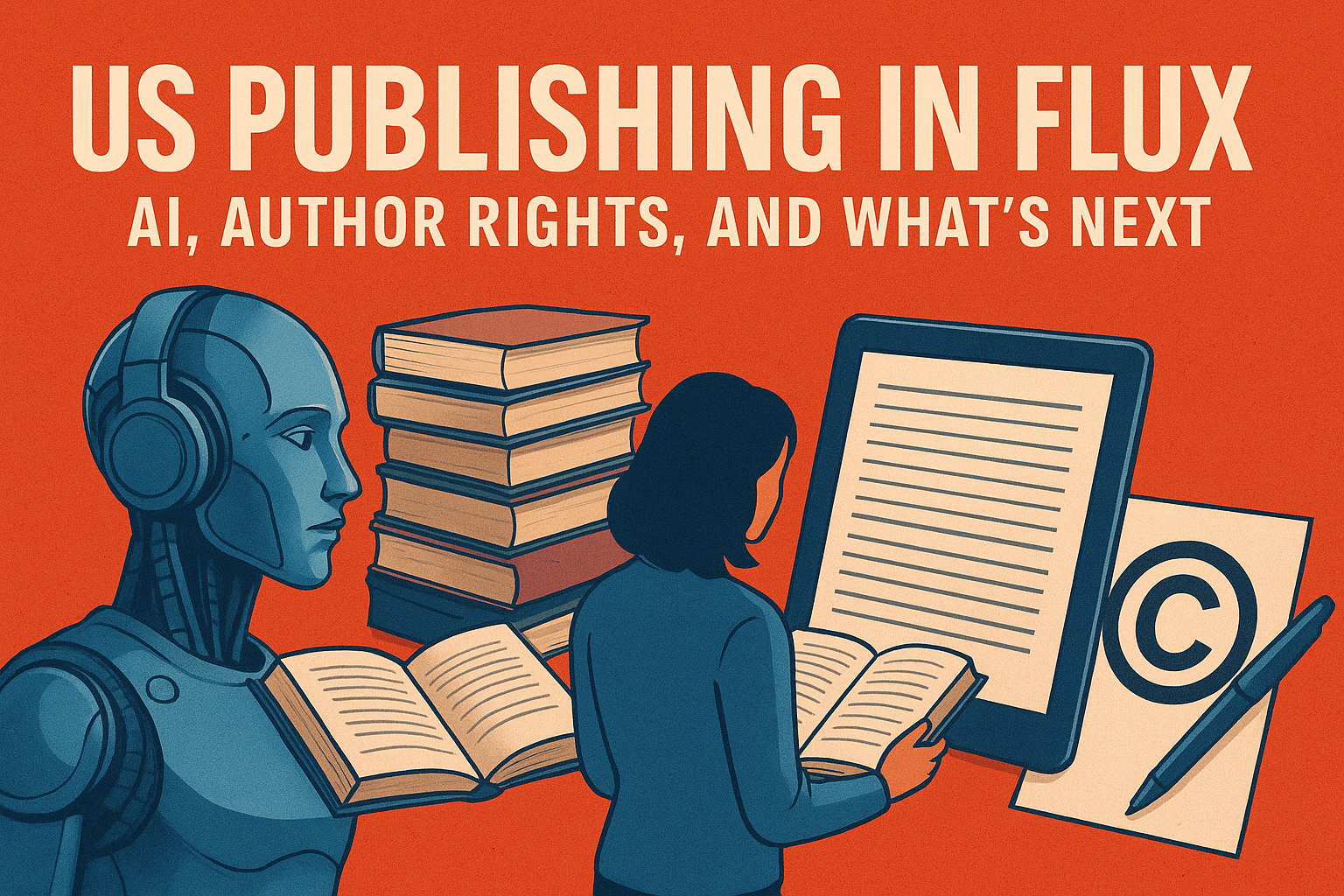15 Key Benefits of Self-Publishing That All Authors Should Be Aware Of

If you have a manuscript that is ready for publishing, your main thought would be to have it published by a traditional publishing house. This is a common route that many would be authors face, and it is trusted by most as well. However, there are some setbacks to the traditional publishing route. First and foremost, it is a very competitive route.
A majority of writers will already have their hearts set on getting a publishing deal with a traditional publishing house. This means you will have to compete against a large number of writers just to get your manuscript published. You will also have to share your royalties with the traditional publishing house.
Yet another aspect of traditional publishing, is that most publishing houses are very picky on what manuscripts that they publish. This means that you will have to face a lot of rejection before you even get your book published.
Don’t worry though. You could choose to self-publish your book. Why should you self-publish your book though? What are the benefits of self-publishing? Here are 15 key reasons to self-publish your manuscript.
1. Innovative printing services
A great feature that sets self-publishing apart from traditional publishing, is the fact that you will no longer have to print out your books in bulk. In traditional publishing, this is the main way of doing things.
Publishing houses would print out books in large numbers, then they would distribute them to various retailers. There is no way of ensuring that these books will be sold, and may get damaged as you wait for people to purchase them.
Luckily there are innovative printing services that allow authors to self-publish their works, without the risks. The most prominent innovation is print-on-demand, which is a process wherein the author stores the manuscript in digital form. The book will be marketed, and should any readers wish to buy the book, a copy will be printed out. This will take away the risk of damage to the physical copies, and the expense of printing too much.
Aside from print-on-demand, you could also convert your book into an eBook or audiobook. These two options are far more cost-efficient and will allow you to have your book used on various platforms. The audiobook option is particularly useful for visually impaired readers.
2. You get to keep the rights and royalties of your book
A key setback to working with traditional publishing houses is that you will need to give up the rights and royalties to your book. This means that you will lose overall control of your book.
For every book that you sell, you will need to give a majority of your royalties to the publishing house. As the sole author of your book, you should expect to keep most of the rights and royalties of your book.
By self-publishing your book, you will be able to earn more money in the long run, because you will get a majority of the royalties for every book that you sell. On the other hand, should you work with a traditional publishing house, you will have to give up most of the rights to your book, and you will only get a small percentage for every book sold.
The typical royalty rate for traditionally published authors is under 10% for every book that is sold. So if the publishing house sells your book for around $14.99, you will only get around $1.79 per book. If you self-publish your book, you stand to earn 70% for book sales.
Author Hugh Howey is a great example of someone who succeeded as a self-published writer. He is the author of the famous Silo book series, and he wrote the first book Wool as a short story and self-published it. He published the post-apocalyptic novella in eBook form, and distributed it through Kindle Direct Publishing in 2011. Although the Wool novella was not really his first priority during the time, he was surprised that the novella was selling at a great rate.
This compelled him to shelve his other writing projects and focus on expanding the Wool saga. He soon managed to reach an incredible level of success, and by January 2012, he released the Wool omnibus, which had him selling around 20,000-30,000 eBook copies a month, and earning $150,000 monthly from his eBook sales alone. Hugh Howey’s story is quite inspiring, and is a perfect execution of self-publishing a book.
3. Overall creative control
Should you publish your book with a traditional publishing house, you will be expected to give up creative control of your book. Remember that these publishing houses already have a reputation in the publishing industry. They usually won’t heed your creative advice, even if it is your own book. In short, the editor, book marketers, and agents will not listen to your creative output.
In self-publishing, you will have overall creative control over your book. Even if you are a newbie writer, you should still have a say in how your book is published, what book cover design to use, and every other aspect of your book.
4. You won’t have to face constant rejection
When it comes to publishing with a traditional publishing house, there is a chance your book won’t get chosen. This is very common with traditional publishing houses, because they usually follow very strict qualifications, which is very difficult for most authors to reach.
This is why self-publishing is a great option. By self-publishing your book, you won’t have to face multiple rejections just to get published. You could self-publish your book on your own terms, without any form of interruption.
5. Control of the prices of your book
Another factor that you will have to take into account during the publishing process, is your book prices. Remember that if you work with a traditional publishing house, you will be expected to adhere to the prices that the publishing house sets for your book. If you feel that your book should have a higher price, you should self-publish your book instead.
6. Book marketing control
A key aspect of publishing your book is book marketing. This is because the more effectively you market your book, the more chances you will have of selling it. Should you publish with a traditional publishing house though, the company will usually take control of the whole process. Some traditional publishing houses may use less effective marketing methods, and may even harm your chances of selling your book. By taking the self-publishing route, you will have overall control of the book marketing process.
If you are going to market your self-published book, you should choose marketing methods that are cost-effective. Remember that you will need to pay for the whole process yourself, so you should have a set budget.
7. More chances of financial gain
As stated earlier, if you work with a traditional publishing house, you will be expected to give a good percentage of any royalties you earn to the publishing house. This is understandable because they paid for most of the endeavor, and published, marketed, and distributed the book as well. They will also own some if not most of the rights to your book. If your book is adapted into a film, this means that you will get only a small percentage of the earnings for the film. This depends on the contract that you signed with the publishing house.
8. You can build your own brand
When it comes to any kind of business, it is important that you take your branding into consideration. This includes your brand as an author. If you work with a traditional publishing house, they may try to cultivate your author brand themselves. They may force you to market and address your fan base in an inauthentic manner that won’t fit with your own perception of your author brand. By self-publishing your book, you will be able to build your author brand the way you want to.
9. More chances to network in the literary industry
You should remember that you could network in the literary industry as a self-published author quite effectively. This is because you will be given free rein on how you market and spread your influence as a writer. If you work with a traditional publishing house, they will do most of the networking for you. While this is convenient, it will impede your chances of creating crucial contacts within the literary industry.
10. You get to choose your publishing team
Traditional publishing houses usually have a roster of publishing professionals in their payroll. While this is very convenient for most authors, there may be times where their professionals are as skilled or specialized as you would wish. By self-publishing your book, you will be able to assemble a team of publishing professionals that will fit your needs and your budget.
Please remember that choosing your own publishing team will entail that you pay for their services yourself. So you should be sure to take your budgeting into account.
11. The publishing process is so much faster
A key setback in traditional publishing is that it takes a long time. This is because traditional publishing houses have a lot of other books that they will need to publish, and your book is usually not on top of the list. This means that you will need to wait for some time before your book could be fully published, marketed, and distributed. This is quite common with traditional publishing houses.
By self-publishing your book, you won’t have to follow this stringent schedule. Instead, you will be able to self-publish your book according to your own schedule.
12. You have complete control of your costing
While traditional publishing houses will pay for most of the publishing process for their books, they usually follow a set budget, and your work may look subpar or not according to your standards.
By self-publishing your book, you will be able to invest as much money as you would want on your book. This will inevitably help in improving the quality of the printing, marketing, and book distribution. This is also an advantage if you have limited funds to spend. You will be able to budget and cut back on services and save money. As a whole, being able to budget your funds during the publishing process is always an advantage.
13. You won’t have to deal with deadlines and pushy editors
A very annoying aspect of working with traditional publishers is that they always have their own schedules to follow. This means that you will have to deal with editors. This is especially true if you are writing a book series, and your editor will want you to write new books on a consistent basis. You should remember though that the muses don’t always grant you inspiration right away. Thinking up new ideas may take more time than you expect, and having a pushy editor badgering you every day will not help. The thought of a looming deadline may also affect your overall enjoyment of the self-publishing process.
By self-publishing your manuscript, you won’t have to deal with these issues anymore. Instead you could just write and self-publish your book at your own leisure. While it is good that you stay efficient and consistent when you publish a book, getting constantly pushed and pressured won’t really do you any favors.
14. Self-publishing companies
While self-publishing a book by yourself is an exhilarating endeavor, you should remember that you will need to do most of the work yourself. If you already self-published books before, you will not really find it too difficult. However, if you are a new self-published author, you may find the whole process a challenge. Don’t worry though. There are self-publishing companies that may lessen the workload.
Self-publishing companies are companies that specialize in helping authors to self-publish their books. They employ highly skilled publishing professionals such as editors, book cover designers, and book marketers. By working with a self-publishing company, you’ll get the advantage of a highly skilled team that will ensure your book is edited, printed, marketed and distributed in the most efficient way possible.
Please take into account that you will have to pay the self-publishing company for their services. As a rule, you should do your research before you hire a self-publishing company. As a rule, you should choose a self-publishing company that offers the best deals for their services, and will give you a majority of the rights and royalties for your book. You should also check reviews and gauge their prices with other self-publishing companies. This may seem like a lot of work, but you will be investing funds, so you should be sure.
If you want a trustworthy self-publishing company, you should try out Milton & Hugo. The company is relatively new, but it has a roster of highly-skilled publishing professionals, and have already helped a good number of authors self-publish their work.
15. You get to enjoy the whole self-publishing journey
Although having a traditional publishing house do all the work may seem easy, it also robs you of the publishing journey. The manuscript is yours, and you spent months writing it. To just hand it over to a traditional publisher to publish may be a bit sad. By self-publishing your book, you are technically empowering yourself. You are taking the reins of your manuscript, and forging your own legacy as a writer.
Conclusion
After finishing your manuscript, the next impulse is to get it published. You should remember though that publishing a book is no easy feat. The most well-trodden path is the traditional publishing route. However, this option is quite difficult because traditional publishers have very high standards which could lead to many rejections. Don’t worry though, self-publishing is a great alternative. This article’s main goal is to enhance your knowledge of the self-publishing route, and show you the main advantages of choosing it.




